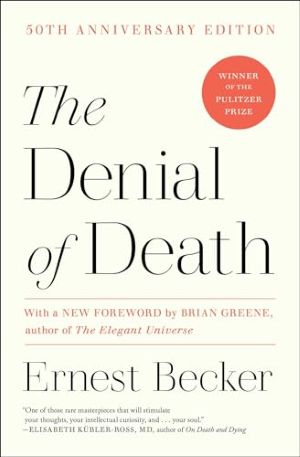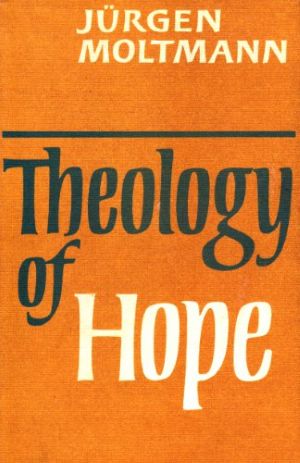I’ve been thinking a lot about death lately. That’s partly due to my age (well into an AARP old guy designation), partly to the way it’s been screaming at me in the news (Gaza!, Ukraine!, Sudan! America!), but mostly because of the painfully sad journey my wife and I made to our hometown in Iowa to attend the funeral of two of our niece’s teen aged children who died in a house fire over the Labor Day weekend. It’s hard not to think about death when it slaps you in the face and slams you in the stomach. Still reeling from that. Will be for some time.
It’s something we don’t often do—think about death—as we spend most of our lives denying it, as Ernest Becker points out in the introduction to his Pulitzer Prize winning book, The Denial of Death:
“The idea of death, the fear of it, haunts the human animal like nothing else; it is a mainspring of human activity—activity designed largely to avoid the fatality of death, to overcome it by denying in some way that it is our final destiny.”

Younger folk are particularly adept at this, instinctively living with the fantasy that they will live forever, even though they know (as we all know at least on an intellectual level) that they won’t. This makes the death of a peer so profoundly disturbing to them (as we witnessed at the funeral). As the priest said in his homily: “This wasn’t supposed to happen.”
I remember vividly the day my death-denying illusions were shattered—it happened when I was a senior in high school. A friend had driven home from school during the noon hour break to take medication, which he did every day. As he was turning his VW Beetle into the school parking lot on the way back, he passed out, lost control of the car, and smashed into a fire plug. His head hit the steering wheel which knocked him unconscious. He died four hours later.
I still remember how it felt when a classmate passed on the news to me. It was a gut punch, sucking the air out of me even as my brain was screaming: No, no, no this can’t be true! The fact that it was true was too horrible to contemplate. This was not supposed to happen. It’s never supposed to happen.
That first jarring encounter with a reality I had spent my life denying turned out to be a spiritual turning point for me. Soon after, all those Sunday School and youth group lessons about the need to put my trust and hope in Jesus came home to me. Jesus’ promise, largely theoretical up to this point, now became something of an existential necessity: “I am the resurrection and the life; those who believe in me, though they are dead, yet shall they live.”
It wouldn’t be wrong to say that under those circumstances, my yearning for an eternal counter to the finality of death was itself a kind of denial. But as I’ve clung to that promise through years of rational and theological challenges to the very idea of life after death, I’ve also become deeply appreciative of the foundational hope it represents, a hope less about denying death than embracing life.
The late Jurgen Moltman’s Theology of Hope is what clued me in to this. The book itself is primarily an overview of the foundational biblical theme of eschatology, which, contrary to popular perception, does not posit a spiritual utopia for disembodied souls.
“Faith does not overstep the realities of decay and death into a heavenly utopia, does not dream itself into a reality of a different kind. It can overstep the bounds of life, with their closed wall of suffering, guilt and death, only at the point where they have in actual fact been broken through. It is only in following the Christ who was raised from suffering, from a god-forsaken death and from the grave that it gains an open prospect in which there is nothing more to oppress us, a view of the realm of freedom and of joy.”
Biblical hope, Moltman says, is grounded in resurrection and re-creation—the new heaven and new earth of Revelation 21 in which the old order of things will pass away and there will be “no more death or mourning or crying or pain”; not, in other words, an ethereal place of repose for disembodied souls, but a reclamation and restoration of creation to its original paradisal state. That’s the future Jesus opens up for us. In fact, he embodies it—giving us through his life a “view of the realm of freedom and joy.” Jesus himself says this in an oft-quoted yet largely misconstrued verse from the Gospel of John: “I am the way, the truth and the life. No one comes to the Father but through me.”

God’s way; God’s truth; God’s life—all mirrored in the Son. Jesus is the way things are supposed to be—and will be when God’s future becomes present.
I must say it took me awhile to grasp what Moltman was saying in this book (as tends to be true with every German theologian I’ve read), particularly what he is saying about how this impacts, or should impact our lives in this world which is bounded by “suffering, guilt and death.” What he is not saying is that we should hole ourselves up to wait for better days to come, becoming in the words of that tired sermon quip, so “heavenly minded that we are no earthly good.” Just the opposite, in fact. A person who embraces Jesus as the prototype of the world that is yet to come will be energized, as Jesus was energized, to live a purposeful, compassionate life.
Imagine that you are on an architectural and engineering team who has been given the task of creating a model city. Think, too, that the firm that has hired you has offered your team all the resources you consider necessary to bring your vision to fruition. In this case, once you have the plans in place, all that you do will be focused on making that vision a reality, even if it turns out that the implementation falls short of what you expected. No matter what the outcome, it is that vision that will drive you, bringing as it were, the future into the present.
That’s what Moltman wants us to understand about the hope we have in Christ. Jesus is God’s blueprint for the future. He is what the world is supposed to be and will become. Once we get that vision into our hearts and minds then (at least theoretically, if not actually) living for Jesus and through Jesus is all that matters.
Here’s the way it works (or should work):
If Jesus models what the world is supposed to be—and will become—then there is no way we can be satisfied with anything smacking of racism or tribalism or Christian nationalism given that the vision he lays before us is of people coming from east and west, north and south, and sitting together in God’s Kingdom at a table laden with God’s gifts. How can we treat anyone with contempt, when we see how Jesus embraced all people, including those who were excluded by others?
If Jesus models what the world is supposed to be—and will become—then we will make a great effort to help create an inclusive society where the poor and marginalized are not only treated with respect, but given the special status Jesus gave them (the last shall become first), not to mention doing what we can to help mitigate poverty and marginalization. Liberation theologian Gustavo Gutierrez used the term God’s “preferential option for the poor” to talk about the call to love our poorest neighbors with the selfless compassion of Christ. Jesus established that option. So should we.

If Jesus models what the world is supposed to be—and will become—then we should be working hard to challenge our country’s obsession with guns and violence. “Blessed are the peacemakers,” says Jesus—those who are working to beat swords into plowshares. If that’s the future, then how can we be satisfied with anything less?
There is, of course, room for debate about how best to interpret what modeling Jesus means in practical terms. It isn’t always easy to translate his radical compassion into programmatic terms. Christians never have nor never will come to a full consensus on implementation. But that his life is the only model worth emulating is not up for debate once we realize that this is where our future lies. Why live for that which is destined for the trash bin of history, the ash heap of failed human achievements, when we know that this is not where we’re headed? Why feast on that which is turning to ashes and dust when we can have a taste of the eternal in Jesus? Why be satisfied with anything less?
I fear that my attempt to give shape to the counter Jesus offers to the finality of death may have raised as many questions as it answers. But isn’t that the nature of the topic? There’s so much that we don’t know, so much that is left to the imagination; so much so that perhaps the best way to ponder these things may be through the words of songwriters and poets. I have one in mind – my favorite Canadian singer/songwriter who gets so much right in his music—especially this. And, yes, I’m talking about the great Bruce Cockburn. This is his Festival of Friends:
An elegant song won’t hold up long
When the palace falls and the parlour’s gone
We all must leave but it’s not the end
We’ll meet again at the festival of friends.
Smiles and laughter and pleasant times
There’s love in the world but it’s hard to find
I’m so glad I found you — I’d just like to extend
An invitation to the festival of friends.
Some of us live and some of us die
Someday God’s going to tell us why
Open your heart and grow with what life sends
That’s your ticket to the festival of friends.
Like an imitation of a good thing past
These days of darkness surely will not last
Jesus was here and he’s coming again
To lead us to his festival of friends.
Black snake highway — sheet metal ballet
It’s just so much snow on a summer day
Whatever happens, it’s not the end
We’ll meet again at the festival of friends.


9 Responses
Thank you, John, for this most important post. My prayer is that, by God’s grace, more people can understand the Good News in these terms.
Thank you. If The Way wends to, and through, decay and godforsaken-ness, being mortal is no longer a tragedy with comic relief, but the reverse. That transformation of the plot bolsters my hope everyday. Jesus’s choice to become totally mortal is brilliant, caring, and gives his, and God’s, Authority Figure identity a sense of creative playwrightiness rather than punitive bossiness.
I have often reflected on the feeling that the institutional church’s greatest recruitment tool is humanity’s fear, not just of death, but of hell. Consequently perhaps, the church has overstated its certainty about how, when, and where eternity behaves. Such things are beyond our ability to describe, let alone grasp.
I love your summary statement: “Jesus is the way things are intended to be, and will be, when God’s future becomes present.” Can’t go wrong there! All the hell-avoiding energy we put into “getting right with God” feels self-delusional and self-soothing. If we recognize Jesus now, we will recognize Jesus “then.”
Wow, thanks for this. It will go into the keeper file, and I’ll have it in mind as I prepare to address the RCL text for Nov 9, with its questions about the hereafter.
“not, in other words, an ethereal place of repose for disembodied souls, but a reclamation and restoration of creation to its original paradisal state.” I say AMEN to that. A thoughtful essay — thank you.
John,
Thank you for taking this awful pain you and your family endured and helping us see beyond it to the hope that keeps us going through such dark times.
Hi John: I’m sorry this response is so late you might not see it, but I just ran across a Bible verse that I didn’t remember from before. It supports your idea that we need to view eternal life from the perspective of Jesus. 1 John 5:20 says of Jesus that “he is the true God and eternal life.” By the way, I love that Cockburn song too.
Great to hear from you , Dave with this affirmation. Didn’t realize you were a Coburn fan!
I just really love everything here. AMEN AND THANK YOU FOR THE TRUTH – I only want to hear truth anymore